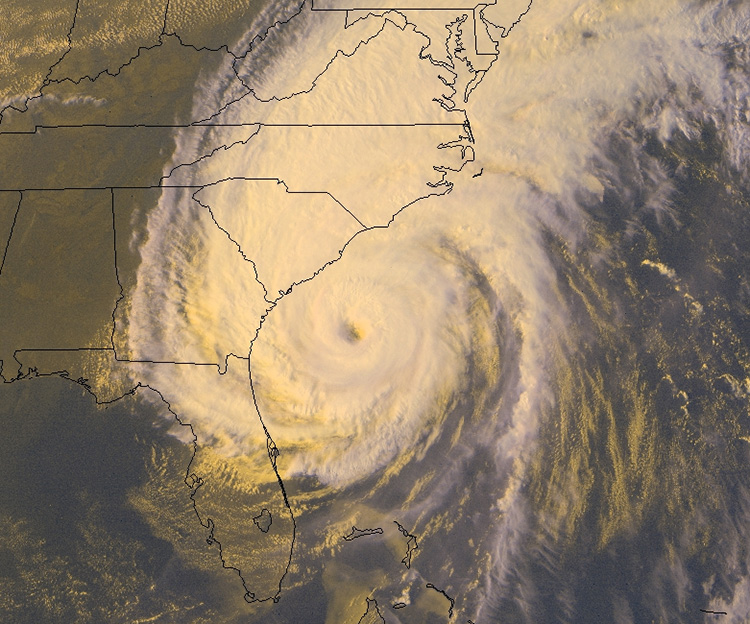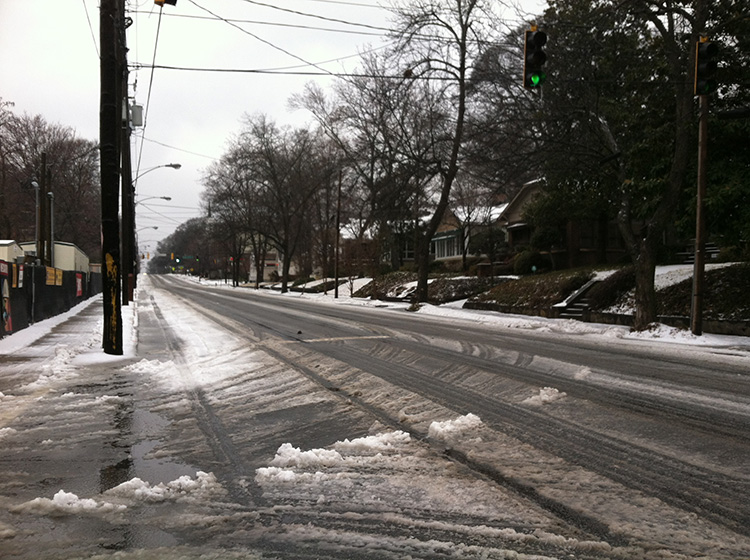
Georgia preppers face many of the same threats as anyone else in America: civil collapse, EMP, natural disasters, etc. However, Georgians have unique challenges than preppers in other states. What makes sense for a prepper in Alaska may not make sense for a prepper in Hawaii. This applies to Georgia as well.
This article will focus on Georgia from a prepper’s perspective. What specific challenges does the state face from a historical perspective? What are the threats given the state’s geography? Where should Georgians prioritize their preps?
NOTE: Do you live in Georgia? You know your state, so let us know in the comments section how this article can be improved. What did we miss? What did we get right?
Georgia Overview – Prepper’s Perspective
When you hear the name Georgia, your mind things of many quaint old southern towns. Perhaps images of Gone with the Wind or Glory, come to mind as you recall it’s central role in the Civil War. The swamps, rolling hills, and hanging Spanish moss conjure up an old Southern familiarity. However, while all of those ideas have a grain of truth, modern day Georgia is far more.
Today, Georgia is a major regional transportation hub. It is home to the world’s busiest airport, Hartsfield-Jackson Atlanta International. Its capital, Atlanta, serves as headquarters to many large corporations. These include Home Depot, Delta, United Parcel Service, SunTrust Banks, and Equifax just to name a few. Twenty of America’s Fortune 500 companies are located in Georgia. Out of those 20, 18 of them call Atlanta home.
The economic prosperity of Georgia doesn’t stop there. Currently, Georgia is seeing large booms in a variety of smaller industries. The rug and carpet markets are leading the way, but are closely followed by the entertainment industry. Nicknamed “The Peach State,” and “Empire State of the South,” Georgia is an active agricultural force in the US. With 1 in 7 Georgians working in agriculture and associated industries, agribusiness adds $72 billion to the state’s economy each year.
Fortunately located in the Southeast of the US, Georgia is afforded natural beauty as well as economic prosperity. Though it is the 24th most extensive state in land mass, it is densely populated. It is the 8th most populous state providing the prepper with both challenges and opportunities. Georgia shares borders five states, Alabama, Florida, North Carolina, South Carolina, and Tennessee making it the gateway for many differing routes into the North American continent. This many borders can be both an opportunity and a challenge should an unfortunate “event” occur.
Climate
Most of Georgia has a subtropical climate. However, in the northern reaches the state boasts the beginning of the Appalachian mountains. This leaves the state with a very diverse climate. With winter temperatures ranging from –10 and –5 degrees F in the mountainous areas to 20 and 25 degrees F along the coast, Georgia presents a variety of climates to be ready to survive in.
As expected, this sort of challenge doesn’t stop with the temperature. Due to the variation in topography in Georgia, snowfall can range from 2 inches up to 7 inches. Precipitation across the state can range between 45 inches in central Georgia to 75 inches around the Northeast part of the state. Like many things in Georgia, it is both a blessing and a curse. While finding water is very rarely a challenge here, it can also be deadly during extreme weather.
Food and Water
One of the benefits of having such a large state is having many options to draw water from. Georgia’s main source of water is supplied from the Chattahoochee River. That river is the main source of two lakes. Lake Lanier is the largest and is the main source of much of the water that locals consume. However, Lake Allatoona is second and also a major source of water for the state. With more than 70,000 miles of rivers, 4,500,000 acres of freshwater wetlands, and more than 425,000 acres of ponds, lakes, and reservoirs, Georgia is in no short supply of fresh water.
Earlier we touched on Georgia’s large agricultural sector. It is no surprise that the state is also very capable of producing it’s own food supply. The state ranks 3rd in peach production behind California and South Carolina. However, Georgia’s peanut, blueberry, pecan, and broiler production lead the nation. Georgia is more than capable of feeding it’s own population if not the entire nation.
Politics
The political battleground of Georgia is a fairly recent development as of this writing. For many decades, Georgia was a die hard republican safe haven. However, now Georgia is a relatively blue state. Yet, that does not go on uncontested. Currently the state’s political scene is divided much like the rest of the nation.
Population
As we stated before, Georgia is full of people despite being so large. The state’s population is 10.7 million. While it is not the most populous state in the country, a population this size is nothing to make light of. One interesting fact about the state’s population is their imbalance of women and men. Most populations are split directly down the middle, but Georgia have far more women than there all men; 48.7% of Georgians are men, but 51.3% are women.
Yet this population is aging. The median age of Georgians is 36.8 years which is approaching the national average. As the age progresses, there will be an enhanced economic burden on the younger population and there is likely to be a political shift. When you consider the racial breakdown of the state, this even becomes more interesting.
The state has the following ethnic composition:
- White 52.7%,
- Black 31.2%,
- Hispanic 9.5%,
- Asian 3.9%
- Other races 2.4%
In terms of ideology, the state is mostly Christian, but only by a razor thin majority. About 50.6% of Georgia’s people are part of the Christian faith. Christianity has been on the decline in the state for sometime and will likely continue to. This only enhances the possibility of large ideological shifts that could fuel political instability in the future.
Crime
Given the large population centers, it is not surprising that Georgia has the tendency to be violent. Georgians have a 1 in 250 chance of being the victim of a violent crime. This is something to be concerned about especially when you consider Georgia’s murder and assault rates are higher than the national average. However, if you find yourself in Georgia, there is no need to panic. When you consider the murder rate at 0.09 per 1000 people and the assault rate is 2.94 per 1000 people, you will realize the numbers are still fairly low despite being higher than average.
However, despite the proclivity toward violence. Both the rape rate (0.32 per 1000 people) and robbery rates are below the national average. This focuses the lens of Georgia’s crime rate and shows that it is largely of a lesser severity and concentrated in urban centers.
Ironically, Georgia despite all of the economic success of Georgia, it still struggles with property crime. Your chances of being the victim of a property crime in Georgia is 1 in 50. Even thought the burglary and motor vehicle theft rates are below the national average, the theft rate is higher at 14.78 per 1000 people. Most is petty crime, therefore a few good locks should keep your things safe.
Georgia Natural Disasters
Of all the disasters that manage to strike Georgia, weather is by far the most deadly. Many natural disasters occur in Georgia, but the severe storms, winter storms, tropical storms, and hurricanes cause the most chaos. Georgia especially suffers tornadoes, having an average of 30 tornadoes each year. This routinely leads to levels of destruction that is high disruptive to the residents lives and the states economy.
However, the weather isn’t the only thing to be concerned about in the state. Georgia also experiences wildfires, floods, landslides, power outages, extreme heat, and droughts. Any and all of these can cause massive levels of chaos. While Georgia gets a little bit of everything, the hurricanes, twisters, flooding, and freak snowstorms are the disasters that play a regular role here.
1) Blizzard of ’93 – This massive snowstorm hit most of the East Coast. What made it especially bad for Georgia is that the state isn’t used to snow. With 3’ of snow dumped on Atlanta, society began to descend into chaos. This lead to the issuing of a Federal Disaster Declaration in across all of Georgia.
2) Atlanta Bombing (1996) – One of the downfalls of being an iconic state with a large population is the threat of malfeasant actors. In 1996, as the festivities of the Olympics took place throughout Georgia there were more sinister plans afoot. A terrorist attack was being planned and would soon come to fruition. After a bomb filled with nails exploded in Centennial Olympic Park, 4 people were killed and 111 were injured.
3) Hurricane Floyd (1999) – Though most hurricanes miss Georgia, Hurricane Floyd managed a direct collision course. This Category 4 hurricane slammed into Georgia and wreaked havoc. Despite the residents best preparations to weather the storm, it still managed to rack up $6.5 billion in damages.

4) Hurricane Katrina (2005) – While most of the attention during Hurricane Katrina was focused on New Orleans, Georgia managed to take a hit as well. The state not only had to face the widespread water and wind damage caused by Katrina itself, but it also had to deal with 18 tornadoes that Katrina spawned. Aside from causing even further destruction to the Peach State, they also killed 2 people.
5) 2007 Wildfires – Anybody who’s spent enough time in the South knows that pine forests are typical down there. Georgia is no exception to this rule. Though most southern states don’t have to worry about forest fires, in 2007 one caused quite a problem. After a downed power line started a pine forests on fire the largest wildfire in Georgian history was born. Though it is a freak incident, it is one to be remembered and learned from.
6) 2008 Tornado Outbreak – While Georgia wasn’t alone in experiencing this, it did rock the state. Within the span of 24 hours, 40 confirmed tornadoes ended up touching down on the East Coast during this outbreak. Five of them (one being an F4) ended up hitting Georgia. Even Atlanta was hit by these twisters and $500 million in damages occurred in Atlanta alone.
7) 2009 Floods – After days of never-ending rain, Georgia found itself at a flood stage. Flood levels were higher than anything that the state had ever experienced. When it was all over with, over $193 million in damages took place and 10 people lost their lives as a result. This remains the worst flood in the state’s history
8) The Snowstorm of 2014 – In more precipitation related chaos, Georgia once more fell victim to heavy snowfall. Except this time the affected areas were buried under feet of snow. Since it happend during the day, many public schools in the area refused to let their students go home. Given the insane rate in which the snow fell, there were sincere fears of leaving children stranded inside their classrooms (or in school buses) overnight.

Georgia Challenges
Georgia has two main challenges that it must contend with when disaster strikes; people and weather. Under the most extreme circumstances, you will have to contend with both at the same time. No matter the disaster, it is important to avoid the large population centers and make the most of the state’s unoccupied wilderness to the best of your ability. This is true no matter if you are bugging in or bugging out.
Prepping Strategies
Bugging In
Harden Your Home
If you are choosing to remain in your home during a disaster, you should make sure that it can weather the storm, literally. Making sure your roof can take hurricane winds without coming off, your windows can be shuttered, and you have plenty of room for food and water storage is essential. Build a safe room if you can. It would be advisable to have a place that is on high ground given the state’s tendency to flood.
Cut the Trees Back
Storms don’t actually kill people. Instead it is the intense amount of debris that those storms pick up and throw around that do the damage. If you are going to stay in your home, make sure that you cut at least 100ft of space back from your home. Ensure that there is no way that limbs, trees, or other debris can come crashing into your home during the next hurricane or tornado outbreak. You can still landscape your home, however. You can even landscape for home security.
Keep A Low Profile
In the event there is a large population displacement from the coast, many people will be coming inland. You should make sure that your home doesn’t draw any attention. Removing politically charged icons, items of value, and putting up natural barriers are advisable. Remember that criminals are always looking for easy places to rob. The best way to ensure that they don’t view you as a target of opportunity is to simply not be one.
Bugging Out
One of the most important pieces of equipment for any prepper planning to bug out is to have decent maps of their state. Having an identified bug out location is crucial. All preppers in any state should begin their bug out plans with a paper map of their state. Nothing is better for all-purpose use than the DeLorme Atlas and Gazetteer.
- Includes Back roads, elevation contours, recreational areas, etc.
- Paperback for easy carry and storage
- Easy to use and read
- Rand McNally (Author)
Be Ready for People
If you are bugging out, then your biggest threat is going to be displaced people. If disaster has struck, then there is a high likelihood of the authorities not being able to secure the peace. Your best bet is to avoid contact with people at all cost. If you have no experience in this then take an urban survival course, look at mastering a pistol, and Brazilian Jiu Jitsu. Remember, a fight is won long before it is ever commenced. Start training today.
Take to the Mountains
Georgia is rich in natural resources. If you are bugging out then capitalize on it’s unoccupied forests and mountains. Every year, many people make their way north on the Appalachian trail that begins in Georgia. Study the ways of those thru hikers and take a note from their book. Investing in good a good tent, sleeping bag, and water purification system will help you as you make your way to safety.
Invest in a Packraft
A defining feature of Georgia is the vast amount of water that is available in the state. While this can turn against the state during times of high rain and storms, those are also highways to navigate. Floating resource rich rivers can help you bug out with few calories expended. A packraft has the advantage of breaking down and going on your backpack until it is needed. A small investment now could make all the difference when the flood waters come or society begins to break down.
- ADVENTURE AWAITS. Featuring our advanced inflating techniques and easy to pack design, this LiteWater Dinghy for adults will get you on the water — anywhere. The ergonomic seat provides comfortable...
- EASY DOCKING. 6 strategically placed tie-off zones provide ample options for lashing gear and securing this kayak on shore. Durable, hardwearing polyester shields your craft from on shore abrasion and...
- EASY-TO-INFLATE. Using the included air pump, quickly inflate this boat when you reach the shore to continue your adventure. Lightweight and with a comfortable seat to sit in, this foldable canoe is...
- TRAIL READY. The pump converts into an ultra compact, 4.5" x 9" storage bag for transport. This minimal packing volume, roughly the size of a thermos, lets you bring all the gear you need for the...
Further Reading for Georgia Preppers
This article just scratches the surface of what Georgia preppers need to know. The following links could held educate you more on prepping in the state.
TruPrep – Prepper’s supply house and school that puts on frequent workshops and seminars in Marietta.
Georgia Bushcraft – Bush craft school in Watkinsville that holds classes on all levels of bushcraft and wilderness skills.
Georgia Emergency Management – Website for Georgia’s Department of Emergency Management, complete with updates on active emergencies and disaster preparedness resources.
Georgia CERT – Community Emergency Response Team’s volunteer homepage. Get involved in saving your community when disaster strikes.
Georgia Preppers Group – Very active Facebook group that will keep you informed of what is happening in the Georgia prepper community.
Georgia Bushcraft Basecamp – Active Facebook group that shares information and knowledge surrounding prepping, survival, and bushcraft in Georgia.


